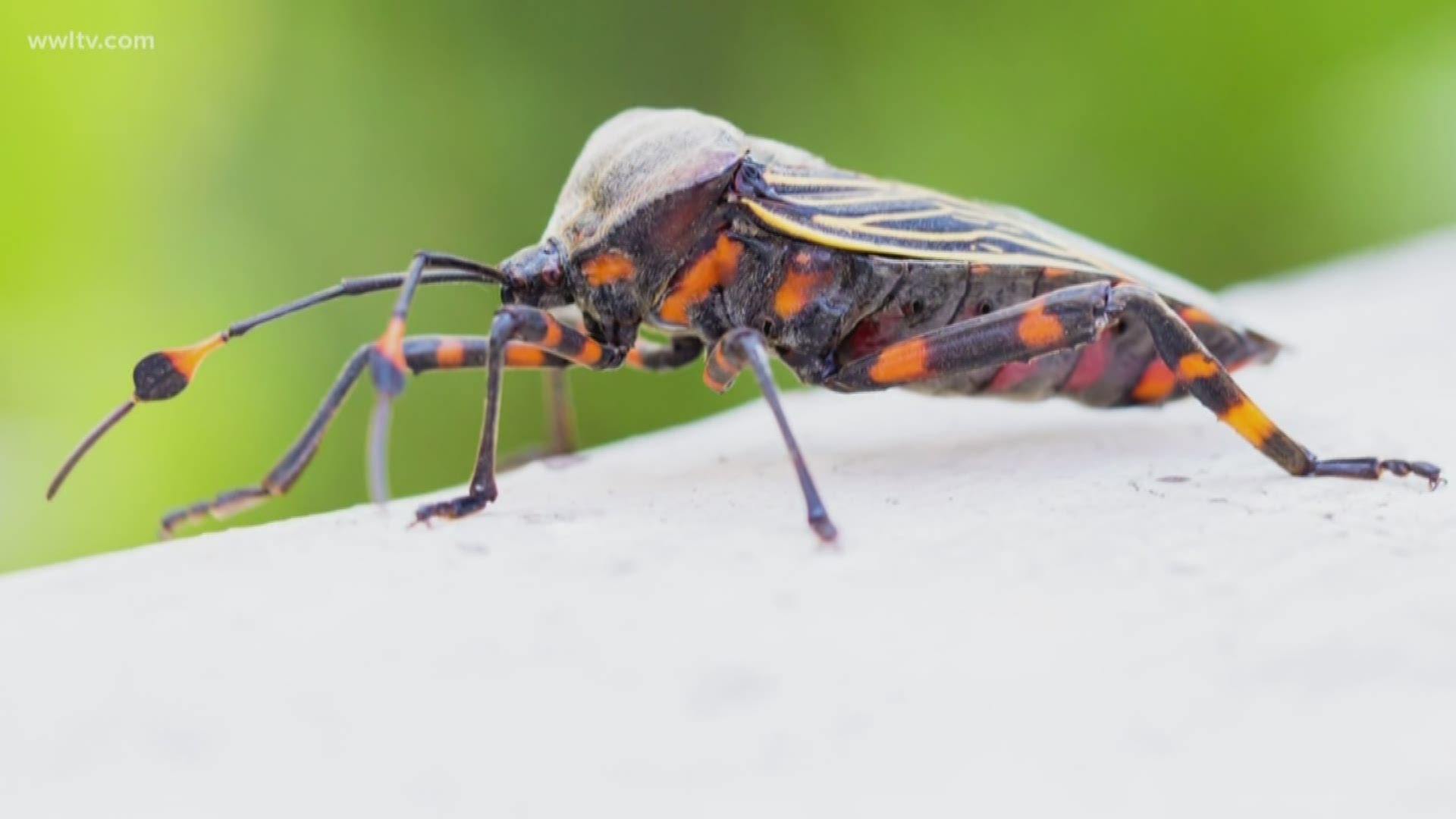NEW ORLEANS — If you thought bed bugs were bad, meet the “Kissing Bug.”
The little insects typically bite people while they’re sleeping and can carry a deadly illness, according to the Center for Disease Control.
Kissing Bugs are typically seen in Latin and South America, but now they have been spotted across the United States.
“The Kissing Bug, really the risk for humans is that they get inside the house and they are going to take the blood from the people,” State Epidemiologist Dr. Raul Ratard said.
Ratard said in Louisiana they’ve noticed the bugs in several parishes, including Jefferson Parish, St. Charles, and Terrebonne Parish. The insects can carry what’s known as Chagas Disease.
“Probably there were a few people who were infected that show no symptoms, and they may never show any symptoms in their lifetime,” Ratard said.
The real danger comes, not by the critters bite, but its poop.
That's right. While the bug is sucking blood it leaves a little something behind, spreading a parasite through its droppings.
Story continues under video
When the person unknowingly rubs it into the bite wound, that’s how it becomes infected.
“Anything that’s suspicious that’s on your skin, that looks unusual, get a medical evaluation,” Ratard said.
Experts say the best thing you can do is keep the bugs out of your home.
“Homeowners should make sure that for instance, windows have all screens and they’re well maintained. They don’t have gaps, they don’t have holes in them. Aren’t rotting. Doors should definitely have gaskets, top bottom sides to ensure it’s good and tightly sealed,” Chris Caire with D&A Exterminating said.
Experts say these pests live in yards so make sure your pets are OK.
The likelihood of being infected is low, but Ratard says it’s important to know what could be lurking around outside.
The CDC says if you do find a bug known for carrying the disease, do not touch it directly. Use gloves or plastic bag to place it in a plastic bag. Take a picture of the bug and contact the Department of Health.

